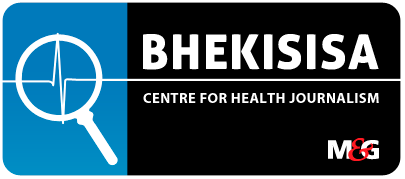Unemployed doctors aren’t the health department’s only vice; those who do work in state clinics and hospitals are heavily underpaid, says the South African Medical Association (Sama).
Yet, South African government doctors earn up to three times more in a month than what some make in a year in other middle-income countries in Africa, such as Kenya and Nigeria.
Last week, finance minister Enoch Godongwana allocated just over R15bn to the health department to help it deal with their staff crisis in government health facilities — and create positions for the close to 700 unemployed doctors who have recently graduated from universities.
The department will have R848bn to work with over the next three years. Of this, R11.6bn will be to cover the 7.5% wage settlement from last year and an extra R3.7bn to pay salaries in the current financial year.
But while the government is scrambling to get enough money to ensure that all 694 unemployed doctors as well as recently graduated healthcare professionals are employed, Sama says the country’s public-sector doctors aren’t paid enough.
At a media briefing ahead of Sama’s annual conference in mid-February, Mzulungile Nodikida, chief executive officer of the association, said that a study commissioned by the association shows that those doctors who are already employed by provincial health departments “are earning 2015 salaries”.
The study found doctors are experiencing “cost-of-living pressures”, but also concedes that their salaries are “above what other similar income-level countries pay their doctors”.
For example, in Kenya medical interns were paid around Ksh122,000 and Ksh145,000 per month (including risk and housing allowances) according to the 2013 Salaries and Remuneration Commission’s allowances for government employees. This works out to around R16,000 to R19,000 a month, compared with the almost R28,000 a medical intern earned monthly in South Africa that year.
Medical interns are medical students who have completed their degrees but still have to complete two practical years in a government health facility under the supervision of staff who work at a state hospital.
Similarly, an entry-level medical officer (which, in South Africa, means you have completed two years’ internship and a year of community service) was paid Ksh250,000 (about R32 500) a month in Kenya from 2013, whereas their South African counterparts earned almost R62,000 per month.
Salaries for doctors in Nigeria — which is experiencing a large-scale exodus of doctors — are even lower.
Data from the National Salary, Income and Wages Commission in Nigeria shows that an entry-level doctor currently earns roughly NN1.8m (about R22,000) per year, compared with someone in a similar post in South Africa getting more than three times that per month — in other words, South African medical officers earn 40.9 times more than Nigerian entry-level doctors (R900,000 vs. R22,000 per year).
The health department says it has not yet looked at why Sama claims doctors should earn more. But, says Foster Mohale, spokesperson for the department, it has “had meetings [with Sama] and we are planning to review our salary scales”.
How are SA government doctors’ annual increases calculated?
After negotiations between the government and trade unions last year, the department settled on a 7.5% annual salary increase for all its workers (as for the rest of government employees). This took a large chunk out of departments’ budgets, leading to their having to cut costs elsewhere, the health department says.
Ironically, getting the money for the salary increases contributed strongly to empty doctors’ posts at state hospitals not being filled, according to Phaahla.
More than 70% of the health budget is spent on paying salaries, Phaahla said earlier this month in response to the South African Medical Association Trade Union (Samatu), a watchdog for healthcare workers’ rights.
According to Samatu, more than 800 qualified doctors were unemployed at the time, but the health department’s follow-up count was closer to 700.
In 2009, the health department implemented occupation-specific dispensation (OSD) for its employees.
The OSD is a table that states the basic salaries for government workers across different departments given their skill level and expertise. It was set up specifically to keep skilled professionals, like doctors, in the government service by making sure they get salary increases that align with their field of expertise and experience so that they can plot a well-paying career path working for the state.
Each post in which doctors work has different levels, with a specific basic salary linked to it. For example, an entry-level medical officer would be on a Grade 1 salary, which sits at just over R900,000 a year. A medical officer is a doctor who has completed their mandatory two-year internship and a year of community service and works at a public-sector hospital.
After five years’ experience in the position and depending on their performance, they can move on to a Grade 2 salary in that post, and earn a basic starting salary of just over R1m. Grade 3 medical officers earn between R1.2m and R1.5m a year.
Have doctors’ increases kept up with inflation?
The Sama-commissioned study suggests that money is a big issue. Like all other public servants, doctors get a salary increase every year, yet the study notes that doctors have felt “a significant erosion in income levels” over the past few years because of small increases, particularly, they say, considering “inflation as well as cost-of-living pressures”.
Between 2013 and 2019, yearly increases were above inflation, but in 2020 the government implemented a salary freeze to keep its wage bill in check.
For two years after, increases have been below inflation: 1.5% in 2021, against an inflation rate of 4.5%, and a 3% increase in 2022 while inflation sat at 6.9%.
“If you’re to retain the current doctors, then you need to compensate [them] appropriately,” said Mvuyisi Mzukwa, chairperson of Sama’s board.
However, money isn’t the only issue that stops doctors from working for the state. Long working hours because of too few personnel and safety concerns, both at urban and at rural facilities, were also mentioned as deterring doctors from staying in public service.
More than 70% of South Africans use government facilities, yet there’s only about three doctors for every 10,000 patients in the public system. This means that the doctors that do work in state hospitals have a heavy workload.
A 2021 study showed that working almost 60 hours a week is common, contributing to more than 80% of these workers experiencing burnout. Burnout is job-related stress which can cause exhaustion and negative reactions to patients.
“Doctors in South Africa frequently contend with heavy workloads and long working hours … making maintaining a healthy work-life balance challenging,” said Mzukwa.
Safety at state facilities is also a problem. Between 2017 and 2022, around 200 violent incidents at public hospitals were reported across four provinces — and that’s only security issues that were big enough to get noticed.
In response to this week’s budget announcements, Sama says it hopes enough funds will be put towards dealing with “the shortage of doctors in hospitals and the plight faced by medical practitioners where salaries have been eroded by inflation over the years”.


































